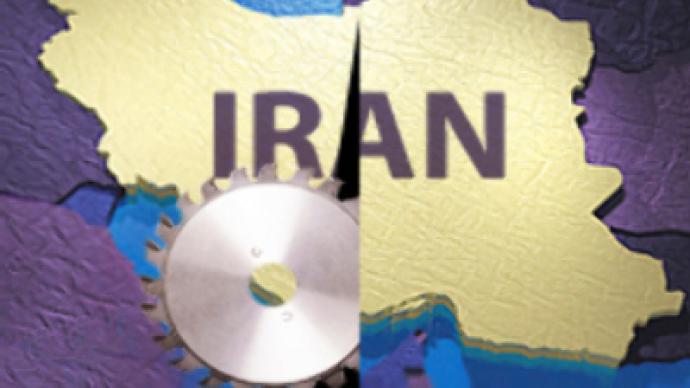Tuesday's Russian press review

This Tuesday Russian newspapers predict new U.S. and European sanctions against Iran, attempt to see beyond the immediate in world finance and report on further anti-crisis steps by major world players. Here is the review of several publications:
NEZAVISIMAYA GAZETA says the U.S. and some European countries are discussing new financial and broader economic sanctions against Iran. Their goal, writes the paper, is to pressurise Iran into discontinuing its uranium enrichment program. The paper says the U.S. and their allies are again trying to bypass the UN as they are convinced that at this stage Russia and China will block any anti-Iran initiative. Meanwhile, says the paper, the U.S. wants some sanctions in place before the New Year and obviously before the Iranian general election scheduled for 2009.
KOMSOMOLSKAYA PRAVDA publishes a report from Nagorno-Karabakh saying that as the conflict between ethnic Armenians and Azerbaijanis in Karabakh was historically the first post-Soviet ethnic conflict in the Caucasus, its importance today is on the rise. The paper says that after the six-year war the conflict entered the current ‘frozen’ stage. But it has the potential to ‘heat up’ again if something wrong is done by one of the major powers pursuing their own interest in the region: the U.S., Iran, Turkey and Russia.
There is a comment attached to the report. It is written by Professor Andrey Manoylo of
the Diplomatic Academy of the Ministry of Foreign Affairs. The academic writes that with NATO’s drive to expand in the Caucasus, U.S. or NATO involvement in the frozen Karabakh conflict is extremely dangerous. He says Russia and Iran are in a much better position to achieve permanent peace between the unrecognised republic of Nagorno-Karabakh and Azerbaijan than NATO. Turkey, however, in spite of being the closest NATO member to the region, should be excluded from the process because no Armenians – in Armenia as well as in Karabakh, France, the UK or the U.S. – can forgive Turkey the Armenian genocide in the beginning of the 20th Century.
IZVESTIA looks into the programme of building new aircraft carrying cruiser ships that Russia is adopting after President Medvedev’s announcement several days ago. The paper says the programme was not born last week. The first Russian cruiser ships with aircraft carrying capability were built in the 1980s and 1990s. However, a lack of money prevented this programme from its natural course and finally it was abandoned, only to be restored in full and with a vengeance in 2008. It is due to be completed in 2015.
The paper highlights the difference between a U.S. aircraft carrier and Russian aircraft-carrying cruiser. The former is a basically floating flight deck with hangars for the aircraft and barracks for pilots and marines. The latter is a slightly smaller ship with fewer aircraft on board but heavily armed with missiles, both strategic and tactical, plus a strong anti-aircraft capability. The result is that a U.S. carrier cannot travel without its support group while a Russian cruiser is capable of conducting combat operations alone.
VREMYA NOVOSTEI. Under the headline ‘The Sense of Foreign Debt’ the paper writes that government support money will go first of all to those companies and banks indebted to foreign creditors who participate in government-sponsored programmes and maintain their own social security-oriented programs, as well as those who are abstaining from massive downsizing and personnel cuts. The paper says that the majority of Russia’s biggest enterprises fit that profile, but some don’t and their fate is now hard to predict.
ROSSIYSKAYA GAZETA publishes an opinion by Yevgeny Primakov, the Head of the Russian Chamber of Commerce and former Prime Minister. He said at a conference organised by the Chamber yesterday that now it is time for the government and government-sponsored funds to purchase the shares and obligations of Russian companies indebted to foreign creditors, especially those in which the state already owns stock and those in which Russia cannot afford a transfer of ownership to a foreign entity.
Evgeny Belenkiy, RT.












